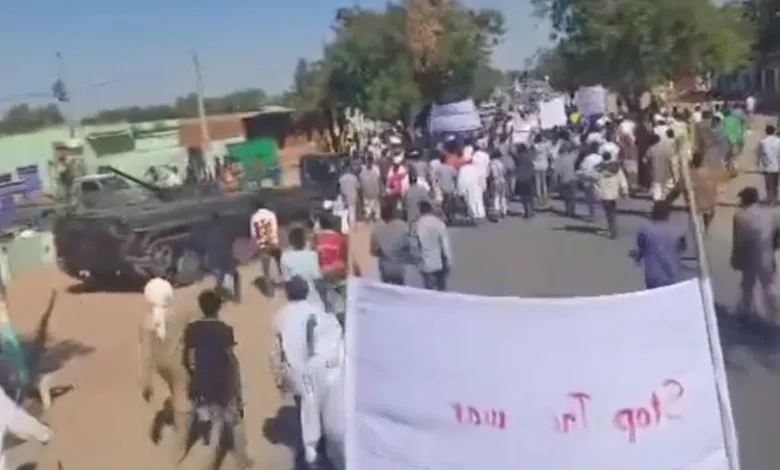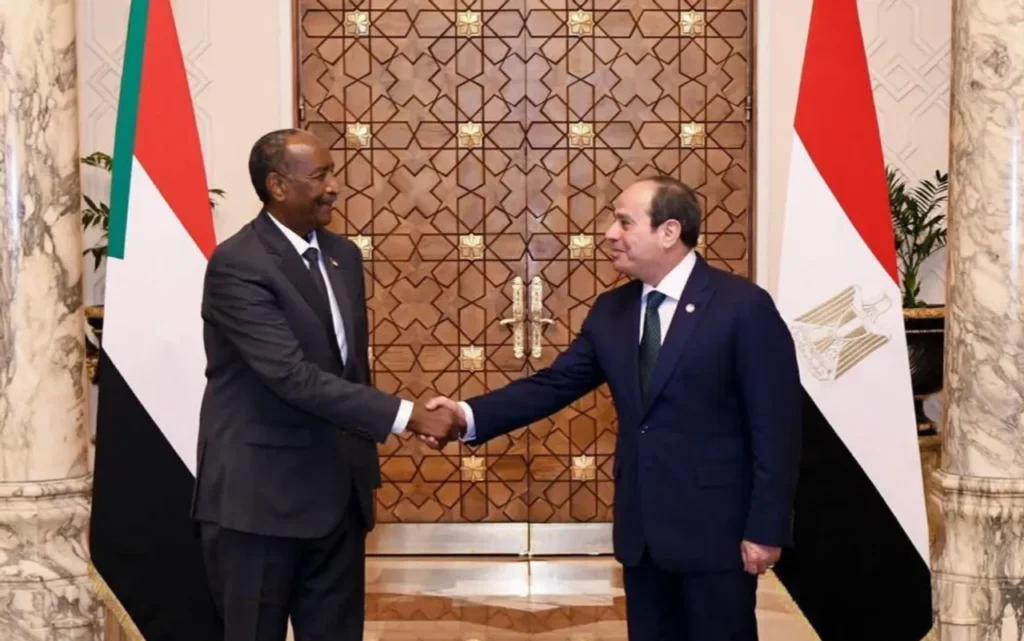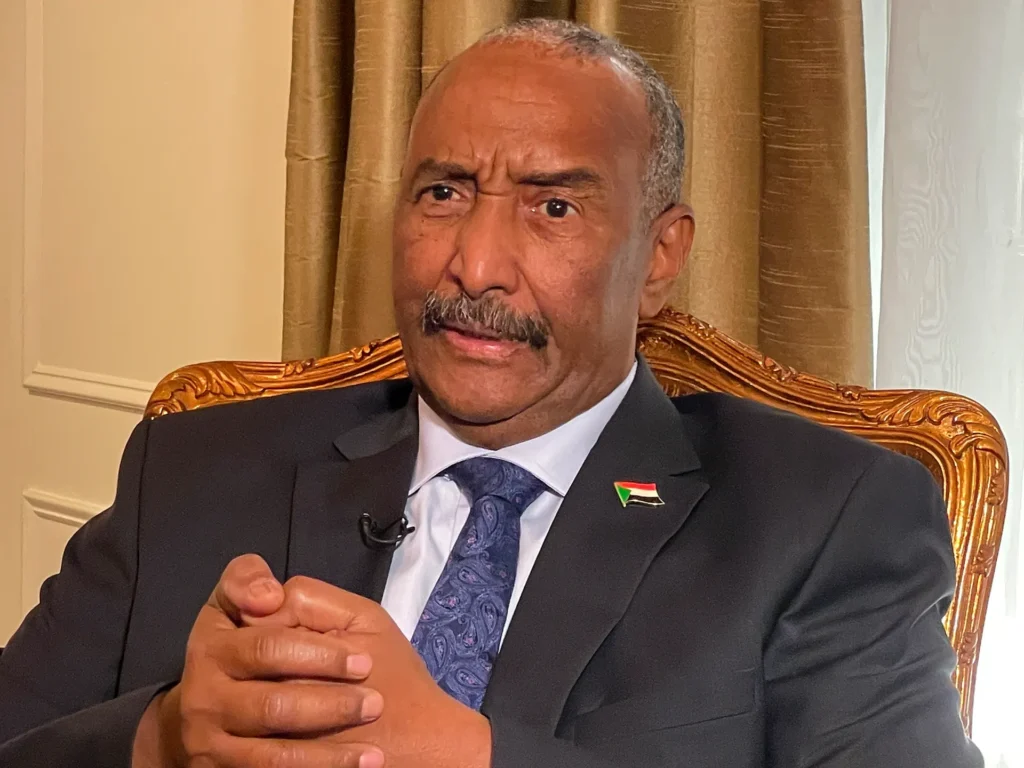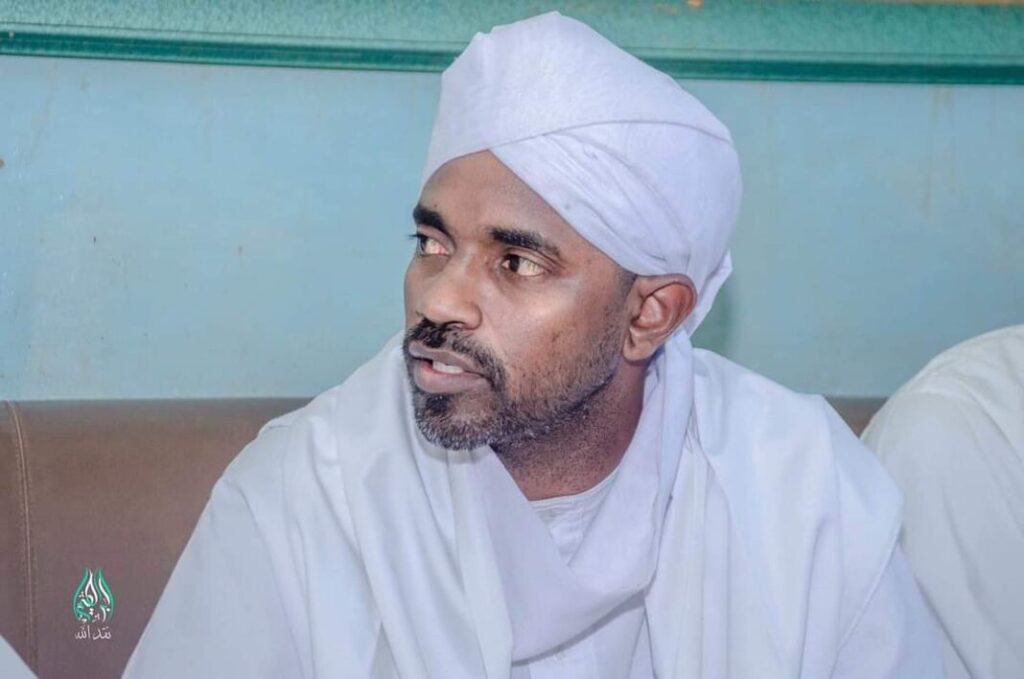
An airstrike by General al-Burhan’s army (SAF) in Nyala, South Darfur, targeted a school sheltering over 1,000 displaced individuals, leaving dozens dead and injured.
The attack, which lasted over an hour, involved the use of explosive barrels dropped into the schoolyard, amplifying the devastation to surrounding areas. Eyewitnesses described the scene as horrific, with body parts scattered across the site, most of them belonging to women and children.
Medical teams are struggling to provide aid due to acute shortages of supplies and personnel. Human rights organizations and political parties have condemned the attack as a war crime, with the Umma Party calling for the urgent imposition of a no-fly zone to protect civilian areas.
Rising Civilian Casualties in Airstrikes
The Asled organization, which monitors global conflict trends, reported that the SAF has carried out approximately 703 airstrikes in 2024 alone.
It warned that aerial bombardment, involving warplanes and drones, has become a hallmark of the escalating conflict. Since October, over 2,000 people have reportedly been killed in airstrikes across Darfur, Khartoum, and Al-Jazeera, according to data from human rights groups.
The Central Observatory for Human Rights condemned the indiscriminate bombing of civilians, labeling it a grave violation of international law. Meanwhile, demands for autonomy in eastern Sudan are raising concerns about further regional tensions.
Calls for Dialogue Amid Growing Humanitarian Crisis
In Addis Ababa, the African Union and IGAD renewed their call for an immediate and unconditional ceasefire to facilitate dialogue aimed at restoring Sudan’s constitutional order.
However, significant factions, including the Forces for Freedom and Change, boycotted the talks, citing a lack of transparency.
Negotiations in Switzerland under UN auspices are focusing on humanitarian aid and civilian protection as the war has displaced millions, claimed thousands of lives, and triggered widespread hunger.
Muslim Brotherhood’s Role and Warnings of Betrayal
Amid the conflict, internal rifts within Sudan’s Brotherhood movement are raising fears of potential betrayals that could destabilize the organization further.
Questions surrounding the handover of ousted dictator Omar al-Bashir and Muslim Brotherhood leaders to the International Criminal Court have resurfaced, adding another layer of tension to Sudan’s complex political landscape.
Army-controlled Sudanese Foreign Ministry’s recent threats against Ethiopia and accusations of Burhan’s alliances with dissolved parties highlight the growing isolation of the Sudanese leadership.
Meanwhile, Muslim Brotherhood-linked threats to civilians have provoked outrage, intensifying calls for accountability and protection for Sudan’s war-weary population.




